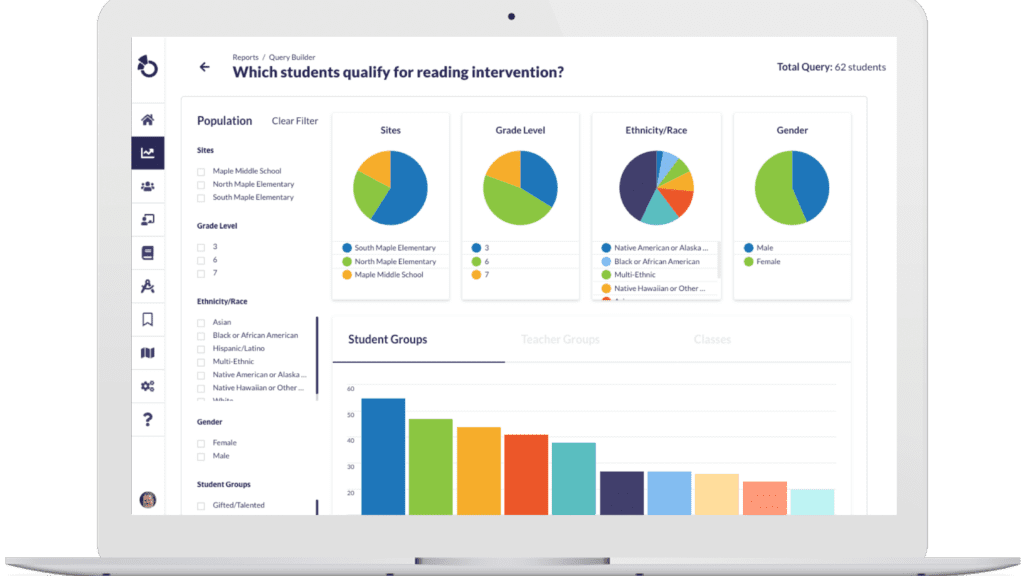At Otus, one of our core values is to help teachers and administrators “see the whole student.” There is so much more to K-12 students than simply their test scores, or their attendance numbers, or any one metric. Like any human being, students have unique personality traits that all combine to influence how they appear on any traditional metric. In order to effectively help each student learn to the best of their abilities, we need to try to understand this larger picture.
The Big Five is a set of personality traits that have proven to be effective at predicting behavior and human outcomes. These traits include Openness, Conscientiousness, Extraversion, Agreeableness, Neuroticism. Often people think of the acronym OCEAN to remember them.
One of the preeminent scholars on these “Big Five” traits is James Heckman. He is a Nobel laureate economist and professor at the University of Chicago. Earlier this year, we had the opportunity to connect with Dr. Heckman. We have been looking at ways to incorporate the Big Five into our work ever since. If we can better understand students’ unique personalities, we can provide teachers with better tools to connect with those students.
The Big Five
First, let’s dig into each of the five OCEAN traits a bit more.
Openness
The tendency to be open to new aesthetic, cultural, or intellectual experiences. Traits include being imaginative, excitable, artistic, curious, and having wide range of interests.
Conscientiousness
The tendency to be organized, responsible, and hardworking. Traits include being efficient, detail-oriented, and ambitious.
Extraversion
The tendency to orient one’s interests and energies toward the outer world of people and things, rather than the inner world of subjective experience. Characterized by positive affect and sociability. Traits include being warm, sociable, self-confident, and energetic.
Agreeableness
The tendency to act in a cooperative, unselfish manner. Traits include forgiving, sympathetic, altruism, and compliance.
Neuroticism / Emotional Stability
The tendency to demonstrate “a chronic level of emotional instability and proneness to psychological distress.” (On the flip side, emotional stability is defined as “predictability and consistency in emotional reactions, with absence of rapid mood changes.”) Traits include worrying, being irritable or moody, and a vulnerability to stress.
Why these five?
“Measures of personality are informative descriptions of human differences.”
-James J. Heckman
Heckman and his colleagues admit that measuring traits is challenging and predictions should be taken with a grain of salt. Correlation is one thing, but Heckman writes about how the field of economics could offer a roadmap for proving causation when using personality traits to predict outcomes. That said, studies have shown that the Big Five can already be useful in looking at academic outcomes. For example, conscientiousness has been shown to be as important as the SAT for predicting the success of college freshman. [You can read more here and here.]
How Tech can support a Big 5 Mindset
When our team first met Dr. Heckman, we were immediately impressed. Our co-founder and Chief Product Officer, Chris Hull, realized how the Recognitions feature in Otus could be a powerful tool for recording observations of student behavior associated with the personality traits that make up OCEAN. Recognitions within Otus provide insights into the daily interactions and activities students perform. When educators connect this tool with the powerful insights provided by OCEAN trait research, they are better able to support students.
“By identifying and focusing on these five traits teachers can more effectively observe and track specific traits to best support and help student development.” Chris Hull, Chief Product Officer
We decided to help make this connection easier for educators within Otus. Every Otus account now has these five personality traits available on the first day a teacher logs in to Otus. Educators are still able to customize the recognitions for their students, but we wanted to provide them a starting point.
This solution made two enhancements at once:
- Users have another starting point within Otus when they first log in, requiring little data entry before seeing the benefits
- Educators and entire districts can begin recording observations of these important personality traits, giving them the potential to see trends and make predictions over time
As users within Otus begin to track these traits, districts will gain greater insights to a know how to best support their students. Within Otus, administrators are able to search and find students who meet criteria outlined and provide interventions in real time to help all students maximize their learning. For example, administrators can query for student Conscientiousness to best identify the students whom teachers are noting as being irresponsible. With this group of students identified, the school can create programs and reminders targeted to help address these traits most effectively.
Capturing more information about a student’s story helps educators, families, and students better understand how to help with their learning. And as we continue to work with Dr. Heckman and educators using Otus, we will continue to find ways to provide insightful information that helps meet the needs of our students more effectively and efficiently.
Related Resources
Request a demo!
See exactly how Otus can help your school accelerate student growth and improve student outcomes – all while saving educators time.





